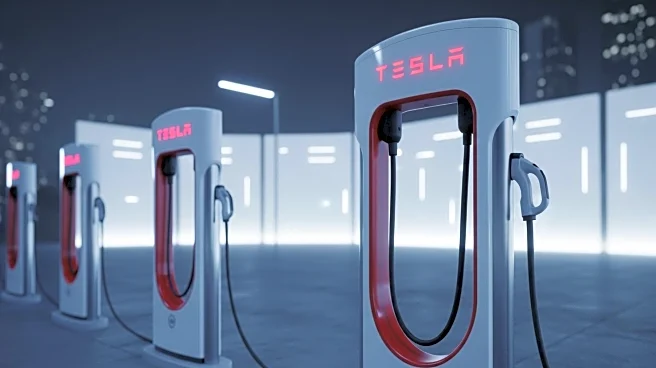What is the story about?
What's Happening?
Germany's electric vehicle (EV) market saw a significant increase in August, with EVs capturing 30.6% of the auto market share. Battery electric vehicles (BEVs) accounted for 19.0% and plugin hybrids (PHEVs) for 11.6%. Volkswagen's ID.3 was the best-selling BEV, while Tesla experienced a decline, dropping from 6th to 8th place in market share. The German economy remains weak, with minimal GDP growth and rising inflation, impacting the overall auto market.
Why It's Important?
The growth in Germany's EV market reflects a shift towards sustainable transportation, driven by increased availability of affordable BEV models. Tesla's decline highlights the competitive pressures in the EV industry, as traditional automakers like Volkswagen and Ford gain market share. The economic challenges in Germany, including weak GDP growth and inflation, may affect consumer purchasing power and the pace of EV adoption. The rise of PHEVs with longer electric ranges indicates a growing interest in hybrid solutions.
What's Next?
Germany's EV market is expected to continue evolving, with new model launches potentially boosting sales. Tesla may need to adjust its strategy to regain market share amid increasing competition. The focus on affordable BEV models could drive broader consumer adoption, while economic conditions may influence purchasing decisions. The automotive industry will likely see continued innovation in EV technology and infrastructure development.
Beyond the Headlines
The transition to EVs in Germany highlights broader environmental and economic challenges, as the country seeks to balance sustainability with economic growth. The decline of Tesla in the German market may signal shifts in consumer preferences and brand loyalty. The growth of affordable EV models reflects changing market dynamics and the importance of accessibility in driving adoption.















